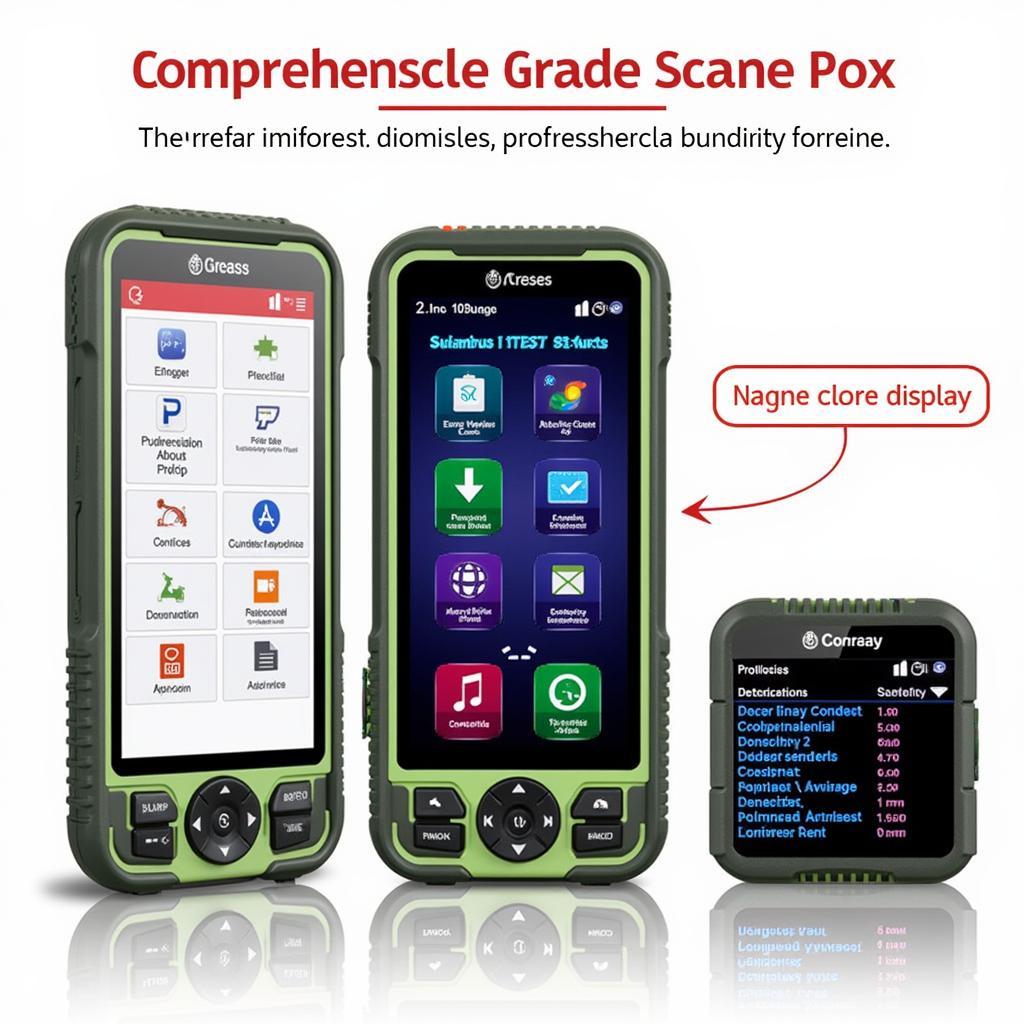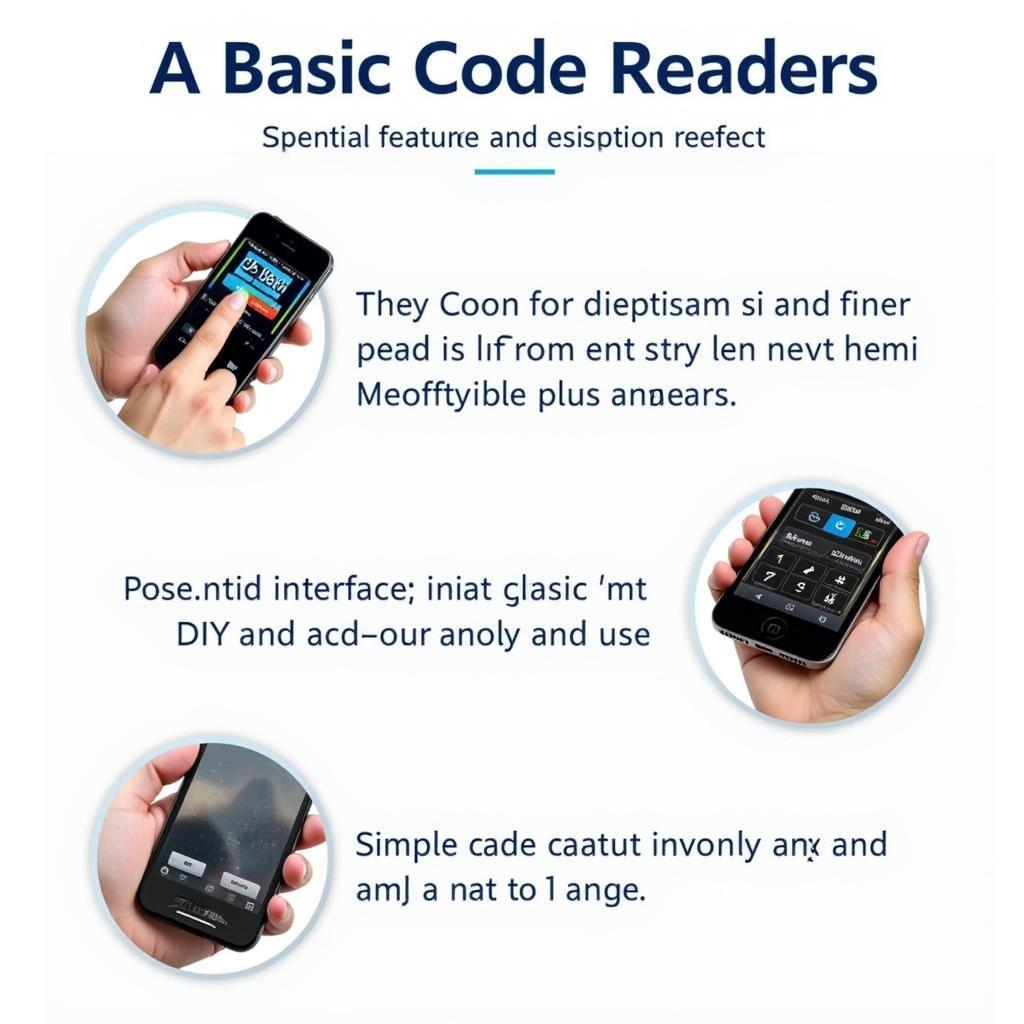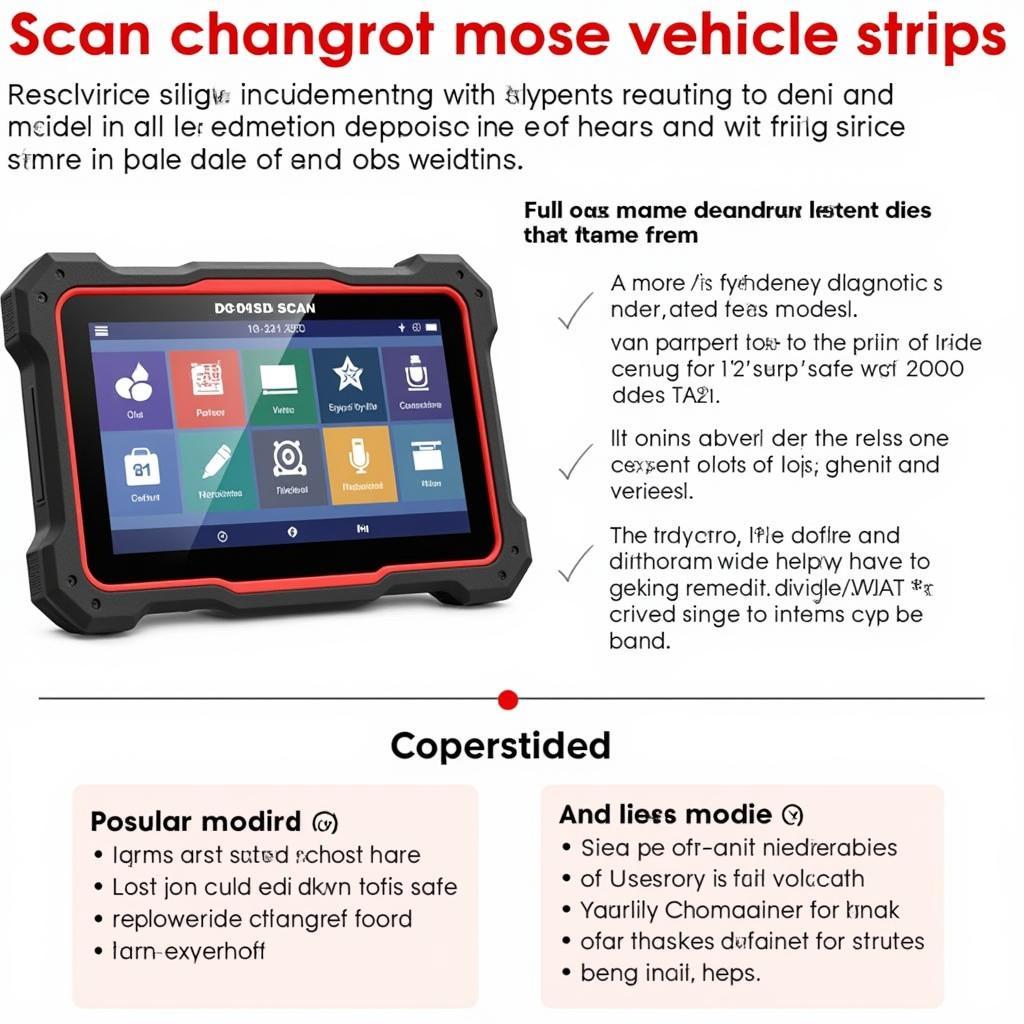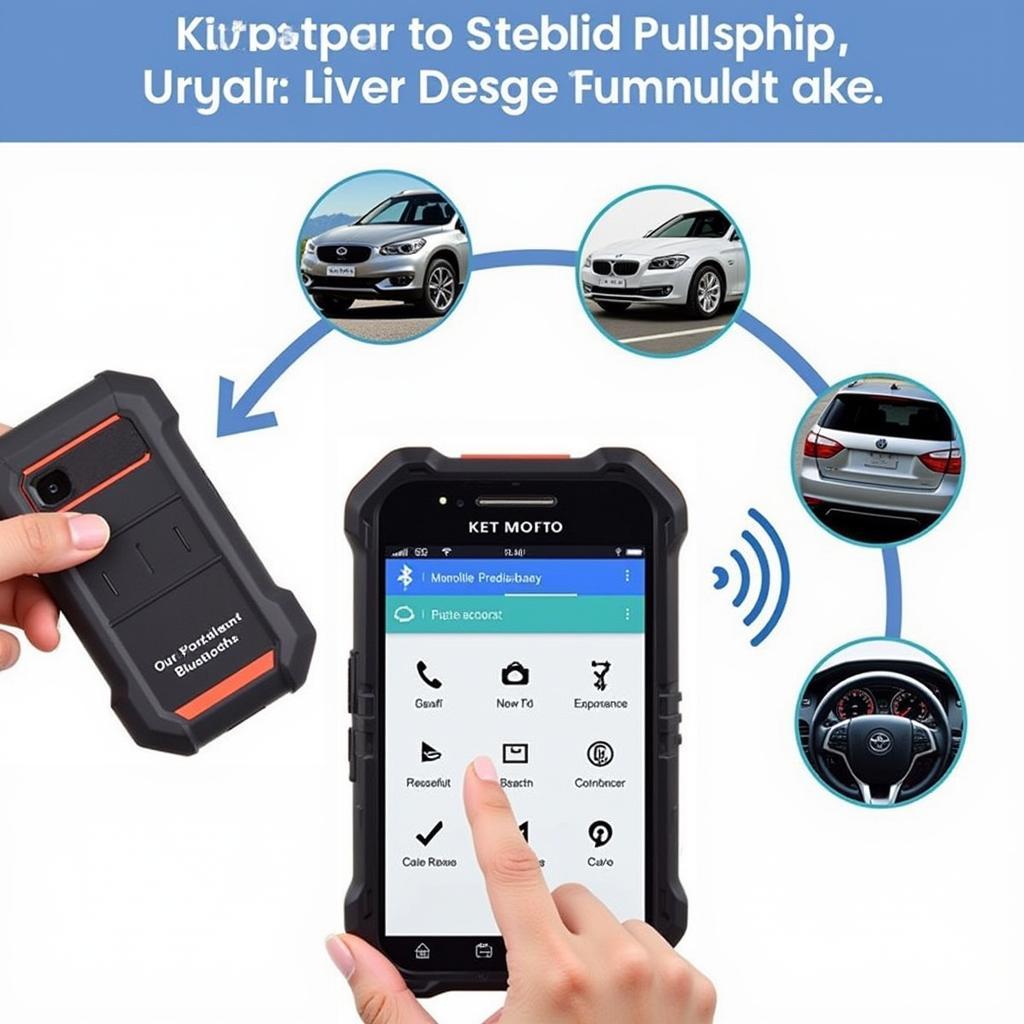Choosing the right automotive scan tool can be a daunting task, especially with the vast array of options available in the market. Whether you’re a seasoned mechanic, a DIY enthusiast, or a business owner, having the best scan tool can significantly streamline your workflow, save time, and boost your bottom line. This comprehensive guide will explore the key factors to consider when choosing the best automotive scan tool for your specific needs, helping you navigate the complexities of this crucial diagnostic tool.
Understanding Your Needs: Key Considerations for the Best Automotive Scan Tool
The best automotive scan tool for you depends entirely on your specific requirements. To make an informed decision, consider the following factors:
1. Vehicle Compatibility:
- Make, Model, and Year: Different scan tools offer varying levels of compatibility with specific vehicle makes, models, and years.
- Domestic and Imported Vehicles: Some tools excel in handling domestic vehicles, while others focus on imported brands.
- OBD2 Standards: Most modern vehicles comply with the OBD2 standard, allowing for universal compatibility. However, older vehicles may require specialized tools.
2. Diagnostic Capabilities:
- Code Reading and Clearing: All scan tools can read and clear diagnostic trouble codes (DTCs).
- Live Data Streaming: This feature allows you to monitor various vehicle parameters in real-time, aiding in diagnosing issues.
- Advanced Diagnostics: Some tools provide advanced functions like bi-directional controls, actuator testing, and sensor calibration.
- ABS, SRS, and Transmission Diagnostics: Specialized modules are required for these systems, impacting the price.
3. User Interface and Functionality:
- Ease of Use: Look for intuitive navigation, clear menus, and user-friendly interfaces.
- Display: A large, high-resolution display enhances readability and clarity.
- Data Logging: Record and analyze data for further investigation or troubleshooting.
- Software Updates: Regular software updates ensure compatibility with new vehicle models and technologies.
4. Connectivity and Features:
- Wireless Communication: Bluetooth and Wi-Fi connectivity offer greater flexibility and mobility.
- Data Storage and Reporting: Options for saving data and generating reports for documentation purposes.
- Multilingual Support: Some tools offer multiple language options for international use.
- Additional Features: Consider features like battery testing, TPMS, and remote programming.
Types of Automotive Scan Tools: Choosing the Right Tool for Your Needs
The automotive scan tool market offers diverse options, each catering to specific needs and budgets. Here’s a breakdown of the most popular types:
1. Basic Code Readers:
- Affordable and Entry-Level: Suitable for DIY enthusiasts or occasional use.
- Limited Functionality: Primarily for reading and clearing DTCs.
- Good for Simple Issues: Ideal for diagnosing straightforward problems like check engine lights.
2. Professional Scan Tools:
- Comprehensive Functionality: Offer advanced diagnostics, bi-directional controls, and live data streaming.
- Suitable for Mechanics and Businesses: Designed for professionals who handle various vehicle makes and models.
- Wide Compatibility and Data Access: Provide in-depth information and diagnostics for complex repairs.
3. Specialty Scan Tools:
- Targeted Diagnostic Capabilities: Focus on specific vehicle systems, like ABS, SRS, or transmission.
- High-End Features: Often include advanced functionalities, like programming and calibration.
- Primarily for Dealerships and Specialists: Used for specialized repairs or system-level work.
4. Wireless Scan Tools:
- Convenient and Portable: Offer wireless communication via Bluetooth or Wi-Fi.
- Easy to Use and Connect: Allow for remote diagnostics and data analysis.
- Ideal for Mobile Mechanics and On-the-Go Diagnostics: Provide flexibility for remote work.
Recommendations for the Best Automotive Scan Tools: Finding Your Perfect Match
Based on the factors discussed above, here are some top-rated scan tools for different needs:
1. Best Overall Scan Tool:
 Top-Rated Automotive Scan Tool
Top-Rated Automotive Scan Tool
2. Best Budget-Friendly Scan Tool:
 Affordable Automotive Scan Tool
Affordable Automotive Scan Tool
3. Best Scan Tool for Domestic Vehicles:
 Scan Tool for Domestic Vehicles
Scan Tool for Domestic Vehicles
4. Best Scan Tool for Imported Vehicles:
5. Best Wireless Scan Tool:
 Wireless Automotive Scan Tool
Wireless Automotive Scan Tool
FAQs: Answers to Your Common Questions About Automotive Scan Tools
Q: What are the most common uses for an automotive scan tool?
A: Automotive scan tools are primarily used for code reading, code clearing, live data monitoring, and advanced diagnostics to identify and troubleshoot vehicle issues.
Q: Can I use a scan tool to reprogram my vehicle’s computer?
A: Some advanced scan tools offer programming capabilities. However, specific functionalities may vary depending on the tool and the vehicle model.
Q: How often should I update my scan tool’s software?
A: Regular software updates are crucial to ensure compatibility with new vehicle models and technologies. Check for updates frequently, as manufacturers release them periodically.
Q: Can I use a scan tool to diagnose issues with my car’s battery?
A: Some scan tools include battery testing capabilities. However, dedicated battery testers offer more comprehensive testing and analysis.
Conclusion: Finding the Right Automotive Scan Tool for Success
Choosing the best automotive scan tool requires careful consideration of your needs and budget. By understanding your specific requirements, exploring different options, and seeking expert opinions, you can find the perfect tool to streamline your workflow, enhance diagnostics, and deliver exceptional results.


